Big in Japan: My post-pandemic trip to Tokyo and Kyoto
The Asian country was one of the last destinations to fully relax its pandemic travel restrictions, but is wide open once again
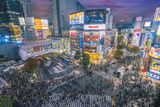
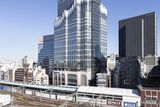
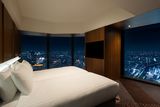
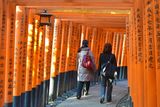
Standing up against the window on the 38th floor of Kabukicho Tower in Shinjuku, I can hardly take in the scene — thousands of buildings spread right across the biggest city in the world, home to more than 38 million people. Tokyo goes for miles in every direction; as far as every horizon. Far below, there’s a train snaking into Shinjuku station. From here, it looks like a miniature in a train set.
My elevated viewpoint is from my room at Hotel Groove Shinjuku — one of two hotels in the new 48-story skyscraper (the other is Bellustar Tokyo), which has bars, restaurants and cinemas. Tokyu Kabukicho Tower opened in May in Shinjuku — one of Tokyo’s liveliest areas, as I discover when stepping outside to explore. Everything hits all my senses at once. It’s around 34C, and there are crowds of people walking in every direction — many under parasols for shade from the sun. Every building has rows of colourful signs, and there are billboards high up playing noisy ads. The air is filled with tempting food aromas.
There’s so much to take in. The black and white pedestrian crossing is the widest I’ve ever seen; the streets are spotless. There’s a sign for an Inu (dog) café. You can rent an umbrella. Electronic music blares from gaming centres. Everything is huge — Shinjuku is Japan’s largest entertainment district, with thousands of bars and restaurants. Its train station is so busy (around 3.6m people a day pre-Covid), it’s in the Guinness Book of Records.
Kabukicho tower in Tokyo. Picture: Y Kuronuma
Apart from the new skyscraper, I’m interested to see what has changed since the pandemic — my last visit was in February 2020, just before Japan closed its borders for two-and-a-half years (it lifted the last of its vaccination and testing requirements in April of this year).
On my first morning in Tokyo, I visit some of the city’s most popular sites. The first is TeamLab Planets (teamlab.art), an art museum with live installations you can walk through.“With your entire body, immerse, perceive and become one with the art” reads a sign at the entrance. Some of the rooms are filled with knee-deep water where koi fish dart along the surface. Others have thousands of flowers. The Infinite Crystal Universe has thousands of LED lights. It’s a thrilling experience and of course, an Instagrammer’s paradise.
Another Insta hotspot is Shibuya Scramble — the famous pedestrian crossing which sees up to 300,000 people a day. It’s fun to cross with the crowd. Viewing it from Shibuya Sky, on the top of the Shibuya Scramble Square skyscraper, the people look like tiny ants.
Read more
It’s easy to get to and around Tokyo. I flew from Dublin to Haneda via Helsinki with Finnair, there’s a direct bus from the airport to Kabukicho Tower and the subway system is efficient. But Tokyo is busy, so I’m thankful to meet tour guide Kenji ‘KJ’ Murakami from Inside Japan, who knows where to go. To get away from the crowds, he suggests Meiji Shrine, a Shinto shrine surrounded by forest in the city.
The executive room at Hotel Groove Shinjuku Tokyo
As we step through the Tori entrance gate, we bow to the deities as we pass symbolically from the ordinary world into the sacred one. We walk along peaceful tree-lined paths and KJ tells me stories of Japan’s emperors, Samurai and Shogun rulers. The shrine is dedicated to Emperor Meiji, who contributed much to the modernisation of Japan after the Edo period of seclusion ended in 1868. Thousands of trees and an inner garden with a lily pond and teahouse make it feel like a rural retreat.
KJ says more things are becoming automated in Tokyo because of the manpower shortage, especially since the pandemic. We see an unmanned convenience store and a sushi bar where the food circulates on conveyor belts. There’s a long wait for a table, so we go to Gusto restaurant, where you order on an iPad and a ‘robot’ comes with the food. It whizzes around on wheels and doesn’t interact with us, but it’s still a novelty.
KJ says there are pros and cons to automation. “Automated things are not so expensive, but communication and conversations are gone,” he says.
“It can sometimes feel lonely if you’re alone.”
Most visitors to Tokyo go to TeamLabs, Meiji Shrine, and Sensoji Temple, Japan’s oldest which dates back to 628, he adds. “Younger people love to go to the anime shops and Pokémon and Nintendo game centres.”
We finish at an izakaya — a bar which serves food — after navigating a network of streets behind the railway track to find a tiny alley lined with bars. Over the music, the buzz of conversation, and the rumbling of trains, we order dishes of cabbage in seaweed, bonito (fish) with green peppers, skewers of delicious beef, and beers.
Fushimi Inari Taisha Shrine, Kyoto
After a whirlwind couple of days in Tokyo, I board the Shinkansen bullet train for Kyoto, two hours away. After Tokyo’s crowds, I am thrilled to arrive at Hotel The Mitsui to find a low-rise building on a quiet street. My room overlooks the peaceful central garden with a large pond and there’s an underground spa fed by a hot spring.
It’s my first time in Kyoto, so I plan to see some main sites and some quieter ones. I meet Inside Japan’s ‘Insider’ guide Van Milton, a Kyoto expert who also leads two-week Japan tours. He talks me through the city’s layout and history. With more than 1,200 temples and shrines, it’s regarded as Japan’s historic centre.
We visit Myoshin-ji, Japan’s largest Zen Buddhist temple complex with 46 temples. One of them, the Taizo-in Zen Buddhist Temple, dates back to 1404. Here, we stroll beautiful Japanese gardens, admire Zen art and marvel at rock gardens where pebbles are raked into patterns. It’s peaceful and uncrowded.
Another temple, Horin-ji Temple, dedicated Daruma-daishi, the founder of Zen Buddhism, has 8,000 ‘daruma dolls’ inside. It’s fun to see the different forms of the distinctive round red dolls. In the late afternoon, we visit the famous Fushimi Inari Shrine, with its rows of red tori gates. There are lots of people at the start of the trail, but the gates stretch right up Mount Inari — it takes around 1.5 hours to reach the top, so the crowds fall away further along the trail.
I ask Van about the problems of overtourism — the city’s population is 1.4m and visitor numbers reached 53.2m in 2019. He says that sometimes at the train station or at Fushimi Inari, it’s so packed he can’t see the ground. There’s a taxi shortage — many drivers left during Covid-19, others are ageing out — and residents get frustrated when local buses fill up with tourists.
Van says an opportunity was missed to rethink tourism when Japan closed its borders during the pandemic, but just after my visit, Kyoto announced some overtourism countermeasures such as extra bus services and signage for visitors. The Japanese tourism ministry followed suit, announcing plans to draw visitors away from hotspots like Tokyo and Kyoto to lesser-known areas.
Van says the less touristy areas can offer just as much to visitors. “People need to realise what’s just beyond Kyoto,” he says. “The towns have the same history Kyoto has. There’s so much within two hours of the city. Farm stays, hot springs, sake breweries. And you barely see another foreigner.”
Read our Japan travel bucket list here
How to do it
Finnair flies from Dublin to Tokyo via Helsinki from €993 in economy, €1,127 in premium economy and €2,275 in business class return. The layover in Helsinki is about three hours. finnair.com
A seven-day Japan Rail Pass for travel anywhere in Japan starts from €336. japan-rail-pass.com
InsideJapan Tours offers private or self-guided trips to Japan. The 14-night Best of Japan self-guided trip costs from €2,340pps (ex flights) including accommodation, transport, some guiding and experiences. InsideJapantTours.com
Irish passport holders do not need a visa for tourist visits of up to 90 days.
Yvonne Gordon stayed at Hotel Groove Shinjuku Tokyo (hotelgroove.jp) and Hotel The Mitsui Kyoto (hotelthemitsui.com/en/kyoto).
If you’re not staying in the Tokyo Kabukicho Tower, consider booking in for dinner at Jam 17 restaurant and bar on the 17th floor (hotelgroove.jp/en/jam17) for epic night views across the city.
Yvonne was a guest of Finnair, Hotel The Mitsui, InsideJapan Tours and Tokyo CVB. For more information on things to see and do in Tokyo, see gotokyo.org, and for Kyoto, see kyoto.travel.







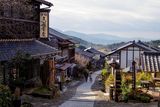




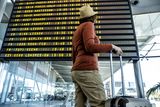


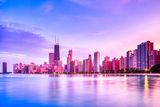
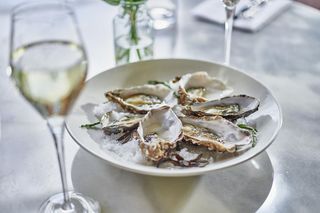
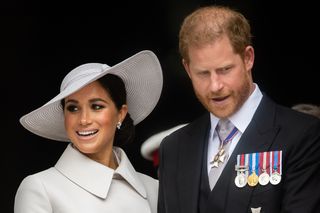

.jpg)
